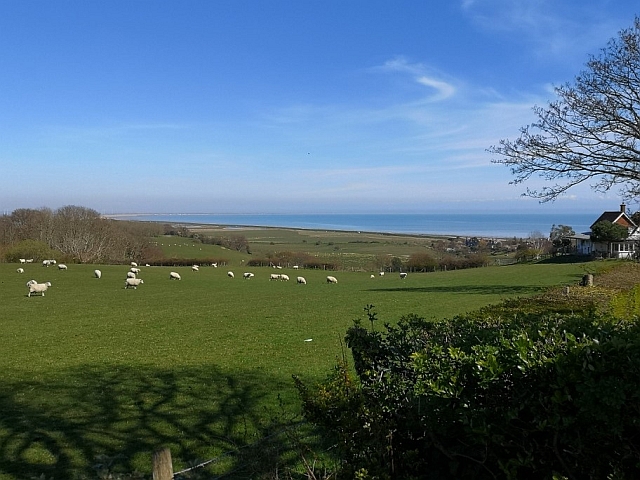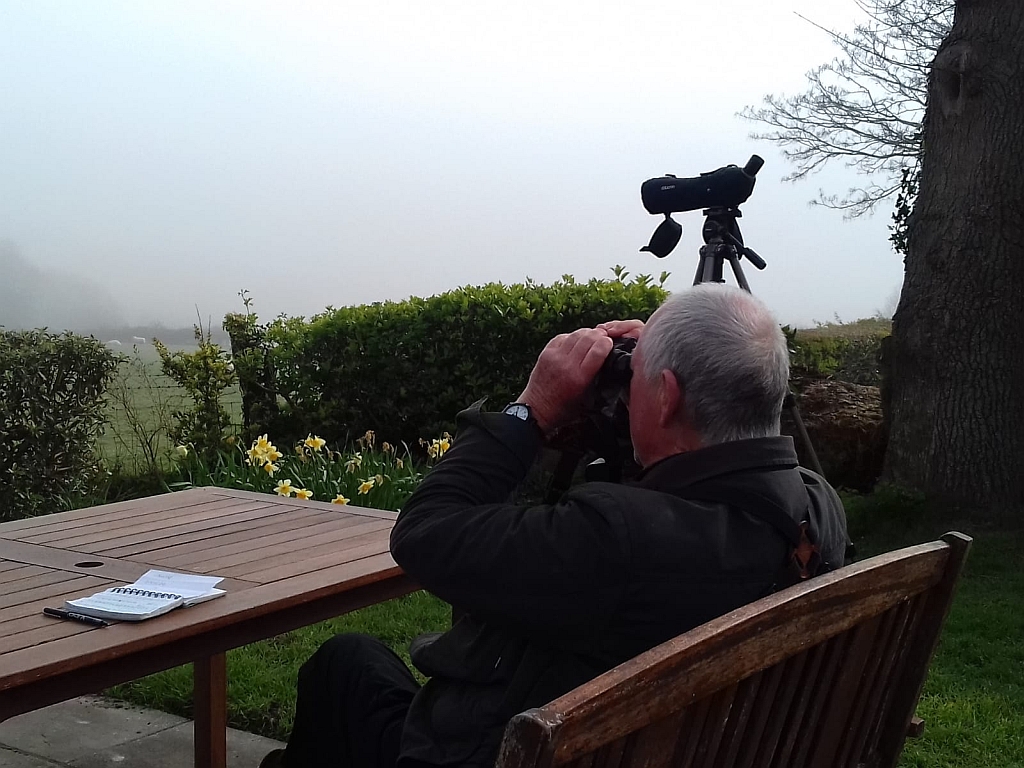Cliff Dean is Chair of the Friends of Rye Harbour Nature Reserve. He and reserve manager Barry Yates have been taking part in our weekly Back Garden Bird Race from their own gardens, and frankly, hitting it out of the park. Admittedly, they both have somewhat of a geographical advantage.
Organiser Michael Blencowe is seeking ways to slow them down, making them wear blindfolds for half of one race!
We ask Cliff to tell us about how it’s been going:

“I’m lucky to live in a house perched on a hill overlooking sheep pasture, small woods and Pett Level. The mature gardens round about are frequented by a good variety of common birds while others fly over, following the coast. So I’m already a compulsive patio-lister, ensuring that other patio-based activities such as “reading” and “gardening” proceed at a very slow pace.
“By the time Michael Blencowe proposed the idea of a Back Garden Bird Race, I’d already been inspired by the heroic response of Italian and Spanish balconbirders to earlier and tighter quarantines.
“From their balconies, windows or even roofs some were already reporting eagles and cranes, but what heartened me most was the excitement of those discovering unexpected wildlife in their own neighbourhoods.
Taking “Unfair Advantage” of my position
“For the first race I had no scruples about maximising the unfair advantage of my position to get an impressive list of birds and the signs were good. The wind had dropped, following weeks of cold north-easterlies and the sky was clear… There was thick fog. I couldn’t see further than the swollen, panting ewes in the field behind us.
“Not to worry – I love listening in to birdsong, so when my phone pinged for the ten o’clock start I was ready to disentangle the trilling, whistling, croaking web of sound, trying to ignore the messages from other parts of the county enjoying clear blue skies.
“I rarely use a telescope but on this occasion made an exception for my secret plan – to scope the marshes for distant wetland birds. This, however, was immediately frustrated and even once the fog cleared the subsequent heat haze ensured I could identify only the biggest species like swans, which I could do with binoculars anyway.
“There were compensating surprises: the cackling of unexpected shelducks somewhere in the murk, and a singing skylark (they never sing up here!) There was also the inevitable Bird of Shame: one which is always around yet for that hour decided to remain incognito: wren. Yes, wren, a common bird with a loud song. No sign. Time up.”
Everyone is welcome to join in, whether you live in a flat, a city or even by a nature reserve. The joy of taking time out to simply look at birds is open to everyone.
Here is more information on how to take part, including some useful ID spotter sheets, as well as an app you can download where you can enter your sightings and includes a guide to garden birdsong.
Image Credits: Sussex Wildlife Trust .



